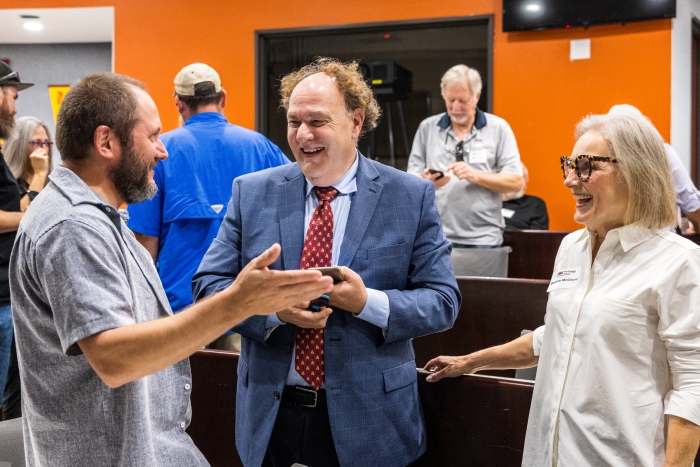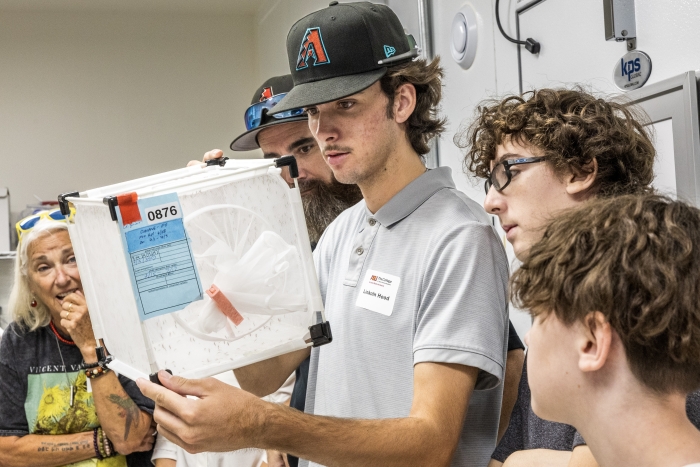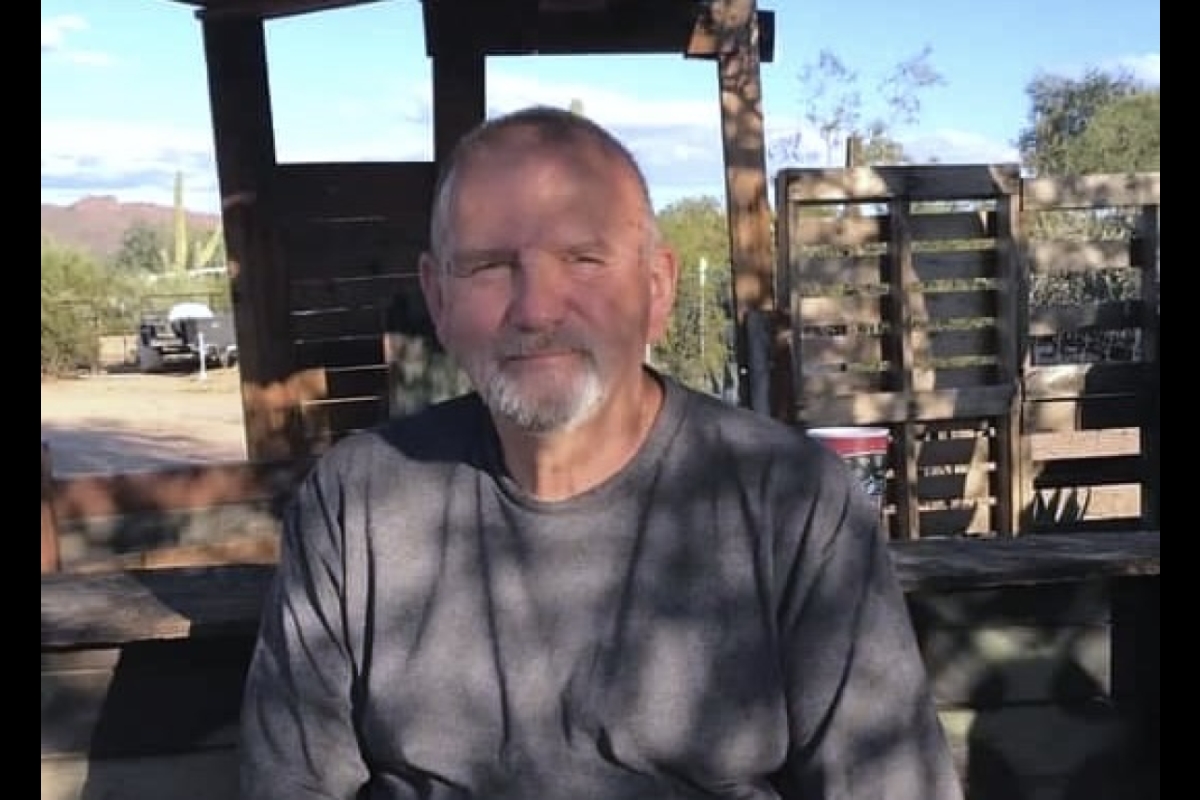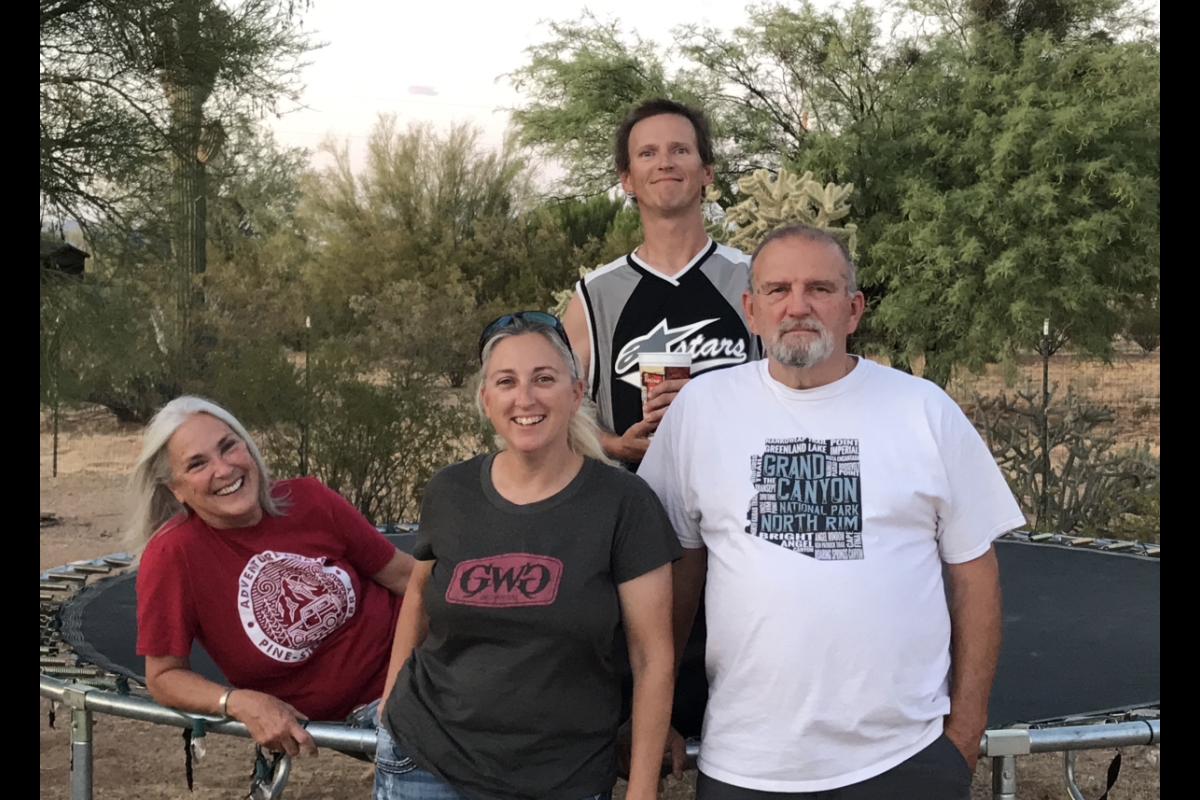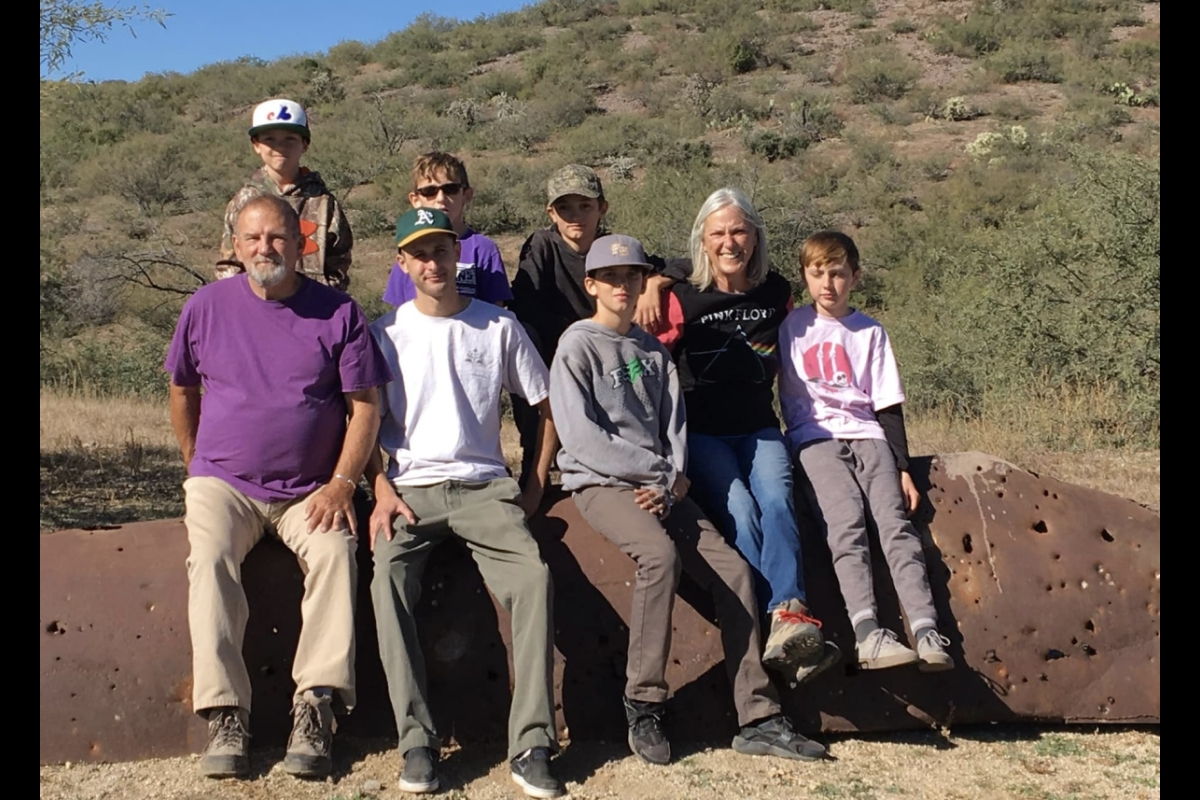ASU alum, whose brother-in-law died of West Nile virus, contributes to ASU insectary
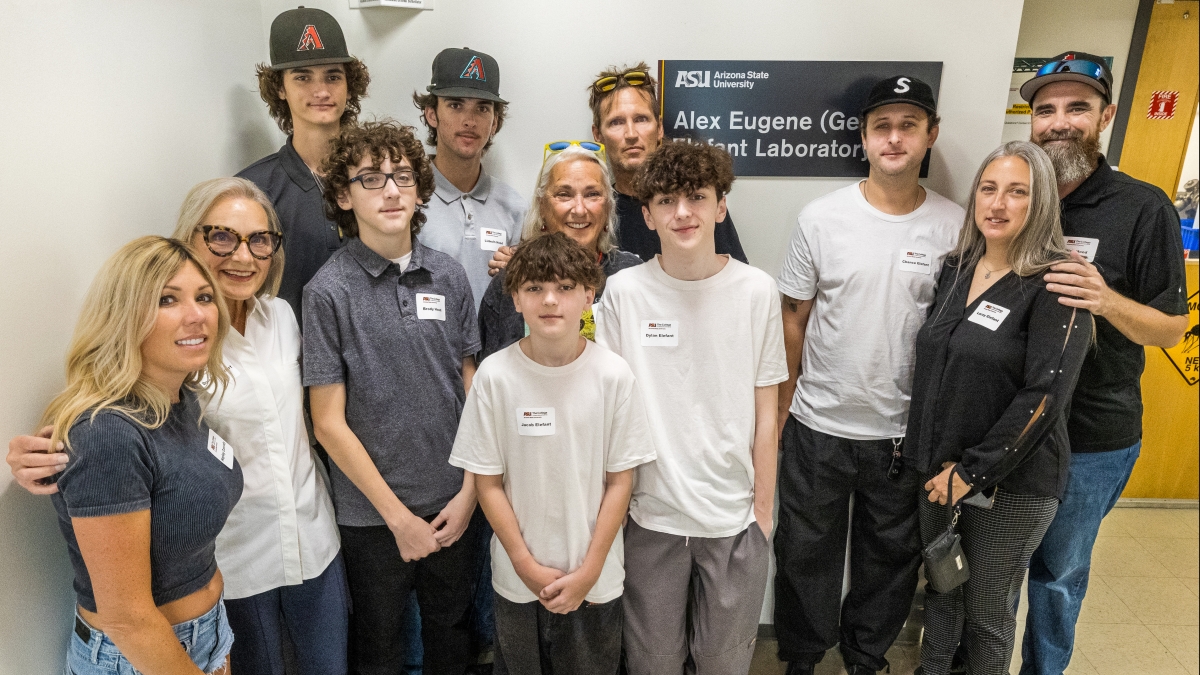
Gene Elefant's family in front of the new laboratory plaque. Photo by Charlie Leight/ASU News
Editor’s note: This story is featured in the 2024 year in review.
Dorene McCourt, an Arizona State University alumna, was flipping through an issue of ASU Thrive last fall when a story on the university’s insectary caught her attention. Shortly after, she reached out to ASU to see how she could contribute to the lab’s future success.
Her interest in the lab stems from her brother-in-law, Alex Eugene “Gene” Elefant, who died in 2021 shortly after contracting West Nile virus, a mosquito-borne illness that currently has no preventative vaccines or medicines. On his birthday, July 29, the lab was named in his memory.
“After I graduated from ASU, I ended up working for Merck, a research-based pharmaceutical company. So I have great admiration and appreciation for what can happen in terms of either saving lives or improving lives through medical research and scientific research. It's near and dear to my heart,” McCourt said.
On Monday, friends and family gathered on ASU’s Tempe campus to speak about Gene Elefant and tour the insectary.
Associate Professor Silvie Huijben and Associate Professor Krijn Paaijmans, who lead research at the insectary, presented on diseases such as the West Nile virus and what they’re currently working on. They were followed by McCourt and his daughter Lacey Elefant, who shared the impact Gene Elefant had on the lives of those who surrounded him.
Afterward, Huijben and Paaijmans guided everyone through the lab, where they discussed different facts about mosquitoes and showcased how they conduct their research and future plans.
In addition to the lab's dedication, a newly established endowment fund was named in Elefant’s honor, with the goal of getting one step closer to finding preventative solutions to viruses carried by mosquitoes. The Alex Eugene “Gene” Elefant Insectary Endowment will continue to fund cutting-edge research and contribute to training and funding undergraduate and graduate student research.
Elefant was described by his family as a hardworking family man. He was known for his wisdom and his inclusivity of all those around him. He took pride in his work and built his career in manufacturing operations and logistics from the ground up.
“He was very genuine; he loved very, very deeply,” said his wife, Darla Elefant. “His family came first in his life, and with me, when I think about him, which is every day, he was very devoted. Gene was always there for me, the kids or really anybody.
“He is my soulmate, my life partner. We were inseparable.”
His children, Lacey and Josh Elefant, had a deep bond with their father. His love for the outdoors translated into some of their family’s favorite memories — from days at Lake Havasu to afternoons spent hunting and camping.
“He took pride in his family,” Lacey Elefant said. “He was the epitome of what hard work and perseverance can achieve. He instilled a robust work ethic in me and my brother, that if you want something, you need to work for it. His legacy exemplifies the principle of working hard to achieve one's goals and emphasizes the significance of family as the foremost priority in life.”
Josh Elefant said he hopes this research will help spread awareness about mosquito-borne illnesses and begin to clear up misunderstandings about them.
“When my dad first passed away from West Nile virus, I had done some research on my own trying to figure out if there is something similar to what you were doing here (at ASU), where there is research being done, where you could make donations to help, and I was surprised that there wasn't,” he said. “So finding out that ASU is putting a foot forward and starting research to try to figure out how we can treat people that become ill with these things, that is super important.”
The family is now looking forward to the advances the ASU team is able to make through the lab.
“The family's hope is that yes, we've had our pain because of the loss of Gene, but we hope that we can also experience the joy of understanding and hearing about the research that these scientists are doing that ultimately ends up saving lives. Not just the impact it will have in the Valley, but worldwide as well,” McCourt said.
More Sun Devil community

Supporters show their generosity during Sun Devil Giving Day 2025
Thousands of Arizona State University supporters from across the globe came together on Sun Devil Giving Day on March 20 to give to scholarships, research, student programs and university initiatives…

New ASU women's basketball coach has sights set on championships
Molly Miller apologized for being a few minutes late for her Zoom interview Sunday afternoon.No apology was necessary.It’s been a crazy and hectic 72 hours for Miller, who guided Grand Canyon…
SolarSPELL wins 'best in show' award at South by Southwest
Arizona State University professors from a variety of disciplines made a big splash at the South by Southwest festival of technology and culture in Texas earlier this month.The ASU SolarSPELL…


